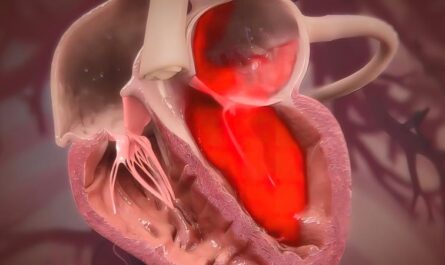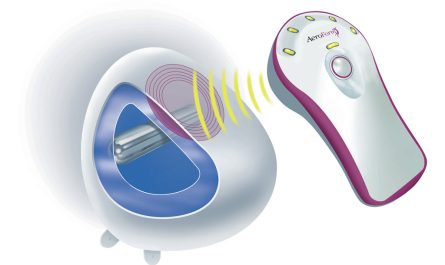
Causes and Symptoms of PCOS
Polycystic ovary syndrome (PCOS) is a hormonal disorder common among women of reproductive age. It is caused by an imbalance of reproductive hormones which can affect the development and release of eggs from the ovaries. Some key symptoms include irregular or absent periods, excess hair growth (hirsutism), acne, pelvic pain, and weight gain brought about by changes in metabolic hormones.
Lifestyle Changes as First-line Treatment
Lifestyle modifications are often the first-line approach recommended by doctors to manage PCOS. Eating a healthy, balanced diet low in refined carbs and sugar can help control weight gain and regulate blood sugar levels. Getting regular exercise, even if just moderate activity like walking, also plays an important role. Losing even a small amount of weight through these measures can help symptoms. Making lifestyle changes may be all that is needed for some women to reduce PCOS symptoms and get periods back on track.
Oral Contraceptives to Induce Periods
For women looking to regulate their menstrual cycles, oral contraceptive pills are commonly prescribed. The synthetic hormones in birth control mimic the body’s natural estrogen and progesterone levels. By providing this stable hormone environment each month, contraceptives can induce regular bleeding. They also help reduce excess androgen levels that lead to symptoms like acne and excessive hair growth. However, pills only provide symptomatic relief and do not treat the underlying hormonal imbalance.
Metformin to Improve Insulin Sensitivity
Metformin is a medication most often used to treat diabetes, but it is also very effective for PCOS. It works by increasing the body’s sensitivity to insulin, helping to control blood sugar spikes and reducing androgen production. Studies show metformin can restore regular ovulation and menstruation in many women with PCOS. It also aids in weight loss when combined with lifestyle modifications. Doctors may prescribe it long-term for its benefits on metabolic and reproductive health. Potential side effects include gastrointestinal upset that usually improves over time.
Spironolactone for Excess Hair Growth
For women struggling with hirsutism or excess facial/body hair, spironolactone may provide relief. As an androgen receptor blocker, it competes with male hormones for receptor sites and prevents their effects. In PCOS patients, it can reduce hair growth within 3-6 months when taken daily. Mild side effects may occur but are uncommon. Spironolactone does not address the root cause of hormonal imbalance but is effective at diminishing unwanted hair symptoms. It is generally considered a safe long-term treatment option.
Fertility Medications for Ovulation Induction
If lifestyle changes, oral contraceptives, and metformin do not restore normal ovulation and a woman wishes to become pregnant, fertility medications may be used. Clomiphene citrate (Clomid) is usually tried first as it stimulates follicle growth in the ovaries and induces ovulation in a majority of PCOS cases. Gonadotropins like FSH injections provide a stronger stimulation effect but also more ovarian hyperstimulation risk. Intrauterine insemination (IUI) may be performed with either medication to boost pregnancy chances. For refractory or complicated cases of anovulatory infertility, IVF may be recommended.
Surgical Options like Laparoscopic Ovarian Drilling
When medications have failed, some surgical techniques can potentially restore ovulation. Laparoscopic ovarian drilling performs multiple cautery sites on the ovary’s surface to suppress androgens. Success rates are similar to clomiphene for inducing ovulation and pregnancy. Another option is ovarian wedge resection which surgically removes a wedge of an ovary containing follicular cysts. These procedures carry surgical risks but may work when drug treatments are ineffective. Surgical menopause reversal like oophorectomy is usually only considered for severe, intractable cases after childbearing is complete.
Integrative Therapies Promising for PCOS
Alternative and complementary therapies are gaining recognition as adjuncts for managing certain PCOS symptoms. Myo-inositol supplementation shows promise for restoring regular cycles, as well as improving metabolic issues and ovulation. Spearmint tea and supplements containing its carvone component can help reduce androgen levels and hirsutism when taken daily. Acupuncture reduces symptoms for some by modulating the autonomic nervous system. Proper diagnosis and monitoring by medical professionals is recommended when considering integrative therapies, as evidence of their safety and efficacy is still emerging.
Conclusion
In summary, PCOS is a complex disorder with multiple treatment avenues available depending on individual factors and goals. A personalized approach addressing lifestyle, medication management of symptoms and hormonal balance, and integrative adjuncts offers women the best chance for relief. Understanding all options empowers patients to work proactively with healthcare providers in finding solutions for this prevalent yet manageable condition. With ongoing care, many women are able to effectively manage their PCOS for both short and long-term wellness.
*Note:
1. Source: Coherent Market Insights, Public sources, Desk research
2. We have leveraged AI tools to mine information and compile



